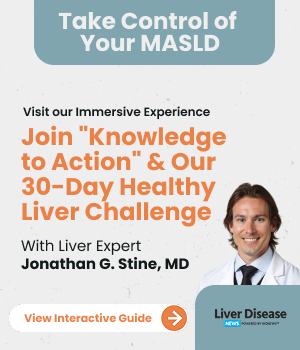US centers get $2.1M to help hepatitis patients find doctors
14 awarded centers seek to aid diagnosed but untreated patients

The Center for Disease Analysis (CDA) Foundation has granted $2.1 million in funding to 14 U.S. organizations to help diagnosed but untreated hepatitis B and C patients find doctors.
The funds come from the foundation’s Relink grant program, which is supported by an $8-million grant from Gilead Sciences. Gilead markets several hepatitis therapies. The CDA Foundation plans to distribute three more rounds of Relink grants by 2025.
The grants will help further the World Health Organization’s target of eliminating viral hepatitis as a major public health threat by 2030, the CDA Foundation said.
“Loss of diagnosed but untreated patients is a major barrier for countries trying to achieve the viral hepatitis elimination targets,” Homie Razavi, PhD, the foundation’s founder and managing director, said in a press release.
The centers will work with patients including pregnant women, women of child-bearing age, and low-income and inner-city patients, as well as those who are homeless, formerly incarcerated, or have limited English skills, and people who are HIV-positive or LGBTQ, Razavi said. The funds will help “link an estimated 14,000 diagnosed but untreated [hepatitis C and B patients] back into a physician’s care,” he said.
Five nonprofit organizations, two state health agencies, and seven healthcare institutions received the grants, the foundation said.
Connecting hepatitis patients with doctors has ‘meaningful impact’
The grants will allow the Hepatitis B Initiative of DC to “re-engage” some 1,000 people who have tested positive for hepatitis B or C, the majority of whom “need more assistance with finding care for their hepatitis treatment,” said Angeline Nguyen, program manager at the organization.
The funds “will make a meaningful impact on the under-served community we screen, as we assist with patient navigation services to help clients overcome barriers for linkage to care,” Nguyen said.
Hepatitis refers to a group of conditions characterized by liver inflammation. The most common types are caused by viral infections, as is the case with hepatitis B and C. Both types are spread by contact with infected blood or other bodily fluids, most often through sex or needle-sharing, or from pregnant women to their babies at birth.
In many cases, the infection is acute and naturally cleared by the body, but in others, it is chronic and may require antiviral treatments.
Available oral treatments can cure or reduce the risk of serious illness in the vast majority of hepatitis B and C cases, according to the Relink program website. Yet nearly 3.3 million people in the U.S. diagnosed with these conditions remain untreated.
Left unmanaged, chronic hepatitis can lead to serious issues including permanent liver scarring and damage (cirrhosis), liver cancer, and liver failure.
Misunderstanding, lack of care
Many people don’t understand how severe hepatitis can be, and they delay treatment or don’t get it at all, the CDA Foundation said. The Colorado-based nonprofit works with more than 110 countries worldwide and 26 U.S. states to help overcome these problems.
The Relink program is open to tax-exempt organizations and healthcare institutions, nonprofits, and public health agencies in most U.S. states. Any organization interested in applying may propose a plan for helping connect untreated hepatitis B and C patients to doctors.
Review of the recent applications was conducted by “a knowledgeable independent advisory committee with representation from the medical community, major universities, and patient advocacy,” Razavi said. “We are grateful for all 35 applicants who took the time to submit a grant and will work with the organizations who were not funded to update their proposals for the next round of funding.”
The submission window for the next round of proposals opened last month, and is intended for programs that will last no longer than 1.5 years. Additional rounds will open in August and next February for shorter-duration programs.









